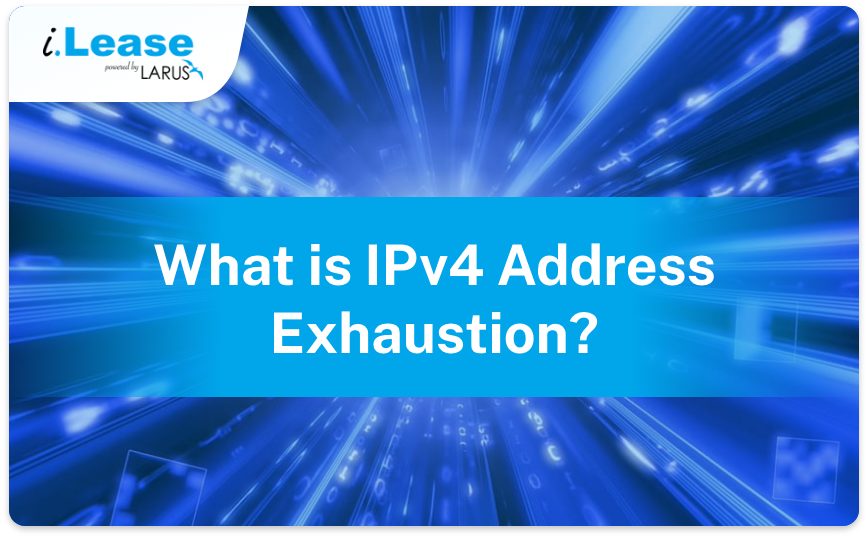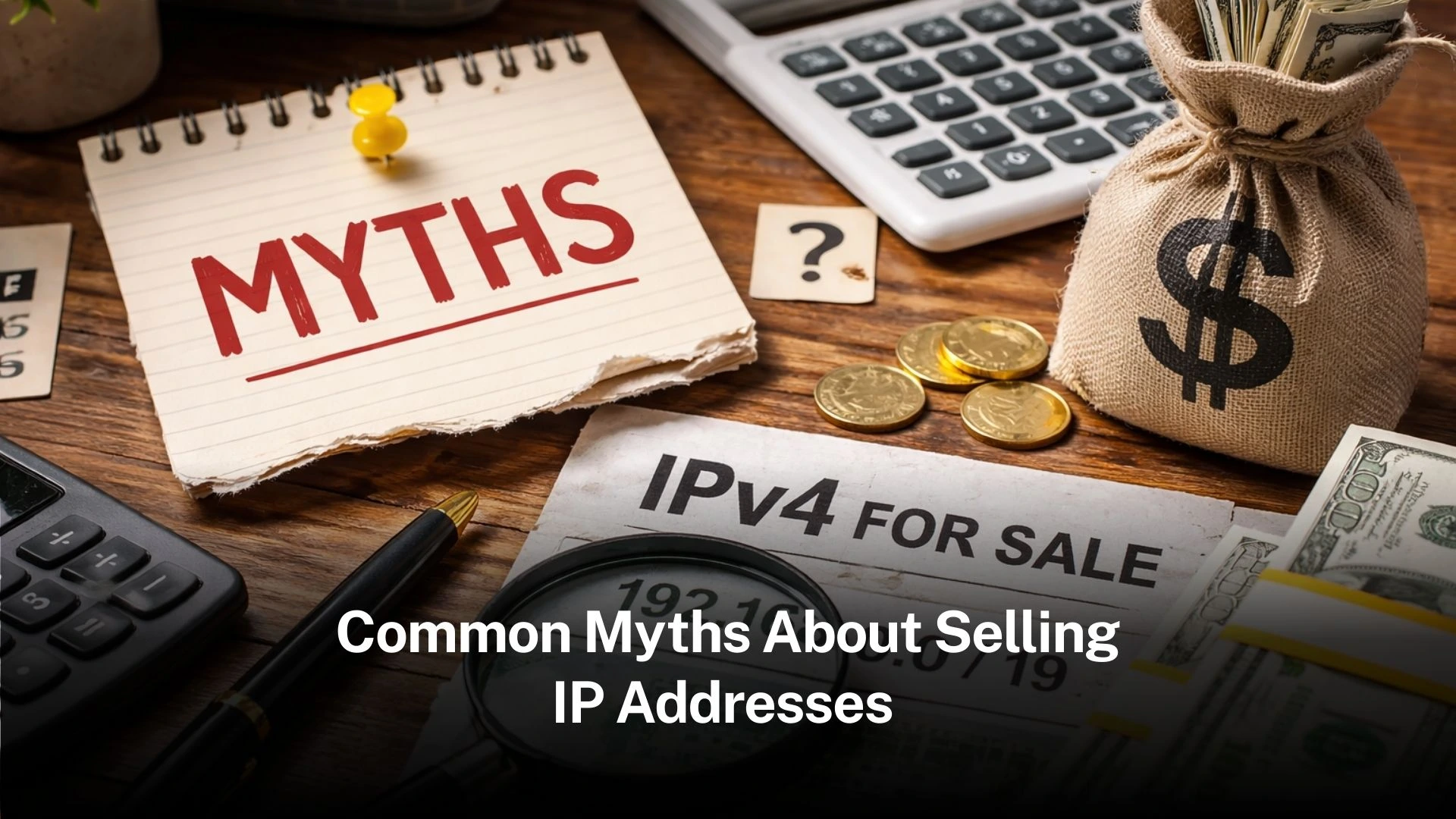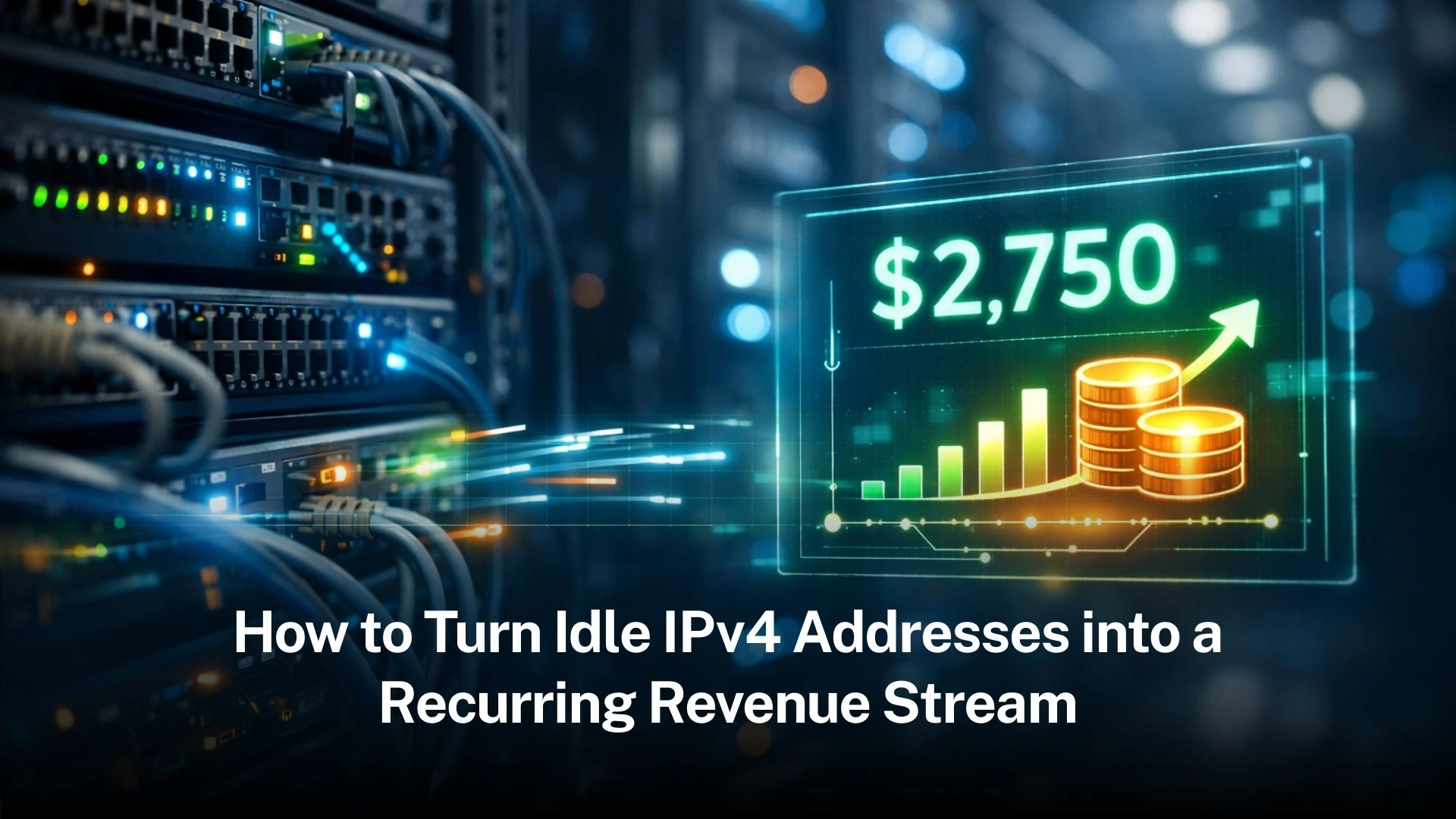What is IPv4 Address Exhaustion?

IPv4 is the initial version of the Internet Protocol (IP), capable of generating 4.3 billion possible IPv4 addresses. However, many of these addresses are reserved for specific purposes, like research and development. This leaves a limited pool for organizations and individuals worldwide.
Table of Contents
With the exponential growth of the internet, the demand for IPv4 addresses has sky-rocketed. This led to a rapid decline in available addresses. We are now at a point where we have practically run out of IPv4s, a state known as IPv4 address depletion.
1.0 Consequences of IPv4 Address Depletion
IPv4 address exhaustion can lead to several negative consequences for the internet:
1. Increased Costs of Connecting to the Internet
Businesses and organizations may face rising expenses as they purchase IPv4 addresses from the secondary market. Secondary markets, whether individuals or brokers, have become sources for IPv4s; as sourcing from Internet registries have become more difficult if not downright impossible.
2. Reduced Performance and Reliability
The internet’s efficiency and dependability may decrease as devices struggle to locate and communicate with each other.
3. Limited Innovation and Growth
A lack of IPv4 addresses may get in the way of developing and deploying= new devices and applications. This could slow down the the internet’s progress.
2.0 Solutions to IPv4 Address Exhaustion
There are some workarounds and outright solutions to the dwindling IPv4 address pool. These include:
1. IPv6 Adoption
IPv6, the next-generation Internet Protocol, offers an almost infinite number of possible addresses. Widespread adoption of IPv6 is ongoing but it comes with costs: human hours and new equipment. As a result, it will take time for all devices and networks to transition.
2. Network Address Translation (NAT)
NAT allows multiple devices to share a single public IP address. NAT gives these devices their own addresses within a private network. When communicating with the internet, NAT translates their private IP addresses. NAT is widely used and is the reason we can use IPv4s despite its supply running low.
3.0 What We Can Do About IPv4 Exhaustion
Out low supply of IPv4 leads to problems like sharing addresses, high costs, and limited space for newcomers. However, not all is lost. There are ways that we can get past the problem of dwindling supplies.
Here’s what we can do:
1. Support IPv6
Encourage the development and use of IPv6 in your workplace, organization, or school.
2. Use NAT whenever practical
Utilize NAT to share your public IP address with multiple devices. Consequently, create a plan to use IPv4 addresses efficiently. Avoid using multiple addresses for different devices on your home network.
3. Spread Awareness
IPv4 address exhaustion affects the internet’s future, and your awareness and actions can help mitigate its consequences.
Every day, there are more laptops, phones, and smart devices that connect to the Internet. Even your door and fridge may need an IP address. IPv6 is particularly important if we want to step further into the world of IoT.
4.0 Why IPv6 Matters for the Internet of Things (IoT)
The Internet of Things (IoT) can be anything from smart thermostats to self-driving cars, all connected to the internet to exchange data. IPv4 simply cannot handle all these physical devices that need to communicate with each other; and over the Internet. The success of IPv6 adoption is also IoT’s success.
Supporting IPv6 is important for IoTs for the following reasons
1.Security
IPv6’s extensive address space enhances device security by making it harder for attackers to target specific devices.
2. Features
IPv6 supports essential IoT features like mobile IP and automatic address configuration. It simplifies how devices connect with each other and to the Internet.
While IPv6 is ideal, it remains a long shot for many organizations. The need for extra human power and new IPv6-compative equipment can deter many. If you are one of such organizations, i.lease can help with your IP address needs. We offer professional advice and competitive packages for IPv4 leasing.
Related Article
Related Posts

Common Myths About Selling IP Addresses
The IPv4 secondary market is often shrouded in mystery, leading many organizations to sit on valuable digital assets because they fear the perceived complexity or legal “gray areas.” As IPv4 exhaustion becomes a permanent reality, the value of these addresses has skyrocketed, yet misconceptions continue to stall potential transactions. At i.lease, powered by the real-world expertise of LARUS, we’ve seen how these myths prevent companies from unlocking significant capital.Read more Related Posts Common Myths About Selling IP Addresses The IPv4 secondary market is often shrouded in mystery, leading many organizations to sit on valuable digital assets because they Read more How to buy IPv4 addresses through a certified IP broker Buying IPv4 space requires policy compliance, verified need, and registry approval, making certified IP brokers essential guides through complex global Read more What happens when IP resources are mismanaged Poor IP resource management can lead to outages, security breaches, blacklisting, legal exposure and reputational damage across networks and business Read more .related-post {} .related-post .post-list { text-align: left; } .related-post .post-list .item { margin: 5px; padding: 10px; } .related-post .headline { font-size: 18px !important; color: #999999 !important; } .related-post .post-list .item .post_thumb { max-height: 220px; margin: 10px 0px; padding: 0px; display: block; } .related-post .post-list .item .post_title { font-size: 16px; color: #3f3f3f; margin: 10px 0px; padding: 0px; display: block; text-decoration: none; } .related-post .post-list .item .post_excerpt { font-size: 13px; color: #3f3f3f; margin: 10px 0px; padding: 0px; display: block; text-decoration: none; } @media only screen and (min-width: 1024px) { .related-post .post-list .item { width: 30%; } } @media only screen and (min-width: 768px) and (max-width: 1023px) { .related-post .post-list .item { width: 90%; } } @media only screen and (min-width: 0px) and (max-width: 767px) { .related-post .post-list .item { width: 90%; } }

How to buy IPv4 addresses through a certified IP broker
Buying IPv4 space requires policy compliance, verified need, and registry approval, making certified IP brokers essential guides through complex global transfers. IPv4 transactions are regulated transfers, not simple purchases — registries must approve documentation, justification and registration changes. Certified brokers reduce risk and delay by aligning buyers with registry policy, routing legitimacy and cross-region requirements. Why companies still need to buy IPv4 addresses The global supply of IPv4 addressesRead more Related Posts Common Myths About Selling IP Addresses The IPv4 secondary market is often shrouded in mystery, leading many organizations to sit on valuable digital assets because they Read more How to buy IPv4 addresses through a certified IP broker Buying IPv4 space requires policy compliance, verified need, and registry approval, making certified IP brokers essential guides through complex global Read more What happens when IP resources are mismanaged Poor IP resource management can lead to outages, security breaches, blacklisting, legal exposure and reputational damage across networks and business Read more .related-post {} .related-post .post-list { text-align: left; } .related-post .post-list .item { margin: 5px; padding: 10px; } .related-post .headline { font-size: 18px !important; color: #999999 !important; } .related-post .post-list .item .post_thumb { max-height: 220px; margin: 10px 0px; padding: 0px; display: block; } .related-post .post-list .item .post_title { font-size: 16px; color: #3f3f3f; margin: 10px 0px; padding: 0px; display: block; text-decoration: none; } .related-post .post-list .item .post_excerpt { font-size: 13px; color: #3f3f3f; margin: 10px 0px; padding: 0px; display: block; text-decoration: none; } @media only screen and (min-width: 1024px) { .related-post .post-list .item { width: 30%; } } @media only screen and (min-width: 768px) and (max-width: 1023px) { .related-post .post-list .item { width: 90%; } } @media only screen and (min-width: 0px) and (max-width: 767px) { .related-post .post-list .item { width: 90%; } }

How to turn idle IPv4 addresses into a recurring revenue stream with iLease
Unlock the hidden value of unused IPv4 addresses with iLease, turning dormant digital infrastructure into a recurring revenue stream while navigating market demand, compliance and risk. Leasing idle IPv4 blocks can generate steady, long-term income without relinquishing ownership. Platforms like i.lease global IPv4 marketplace make it easier to monetise addresses and manage reputation and compliance. why IPv4 addresses still matter Despite the long-anticipated exhaustion of the IPv4 address space — aRead more Related Posts Common Myths About Selling IP Addresses The IPv4 secondary market is often shrouded in mystery, leading many organizations to sit on valuable digital assets because they Read more How to buy IPv4 addresses through a certified IP broker Buying IPv4 space requires policy compliance, verified need, and registry approval, making certified IP brokers essential guides through complex global Read more What happens when IP resources are mismanaged Poor IP resource management can lead to outages, security breaches, blacklisting, legal exposure and reputational damage across networks and business Read more .related-post {} .related-post .post-list { text-align: left; } .related-post .post-list .item { margin: 5px; padding: 10px; } .related-post .headline { font-size: 18px !important; color: #999999 !important; } .related-post .post-list .item .post_thumb { max-height: 220px; margin: 10px 0px; padding: 0px; display: block; } .related-post .post-list .item .post_title { font-size: 16px; color: #3f3f3f; margin: 10px 0px; padding: 0px; display: block; text-decoration: none; } .related-post .post-list .item .post_excerpt { font-size: 13px; color: #3f3f3f; margin: 10px 0px; padding: 0px; display: block; text-decoration: none; } @media only screen and (min-width: 1024px) { .related-post .post-list .item { width: 30%; } } @media only screen and (min-width: 768px) and (max-width: 1023px) { .related-post .post-list .item { width: 90%; } } @media only screen and (min-width: 0px) and (max-width: 767px) { .related-post .post-list .item { width: 90%; } }